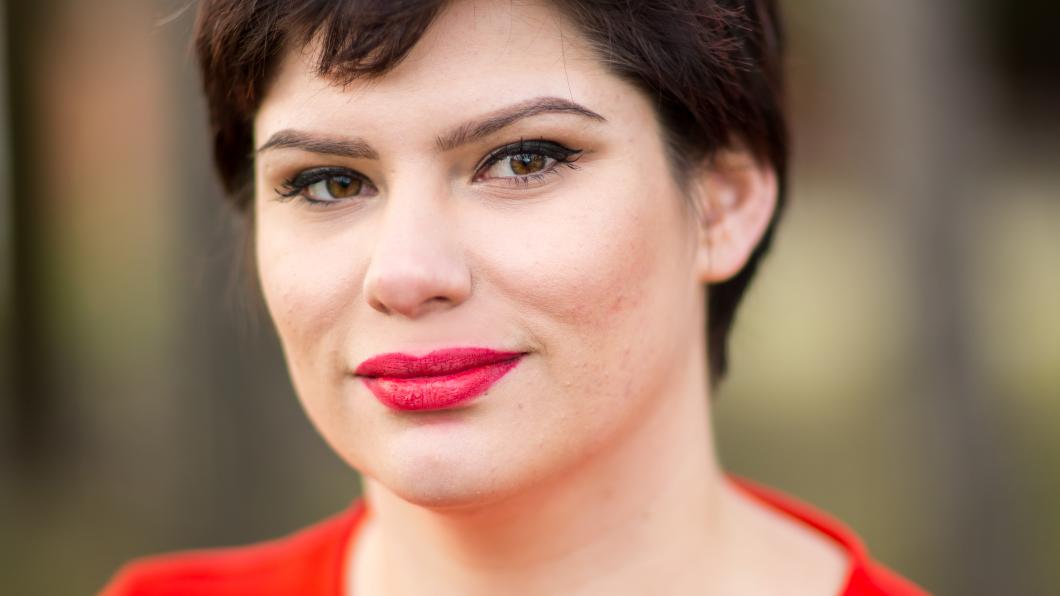
Q & A with Karly on Youth, Dating & Disabilities
Many young people - including those with disabilities - are experiencing the ups and downs that come with navigating the waters of dating. In honour of Valentine's Day, we talked to Karly about what it means to date when you have a disability.
Karly is a personal support worker who provides one-on-one support to people with disabilities in workplace settings. She's part of the Participation and Inclusion team here at Holland Bloorview, working as a Youth Facilitator in the employment transitions strategy. Karly is a trained social service worker, and is currently pursuing her Masters Degree in Social Work at Ryerson University, focusing on sexuality and gender.
What dating advice would you give to teens with disabilities? Is it different than the advice you would give to your friends without disabilities?
Be patient. Because we are born with exceptions, we do not always reach milestones at the same rate as our typically developed counterparts. Just like other things, dating and relationships may take time to navigate and that’s okay! It is important to focus on what your goals are in relation to dating and doing your part to pursue those goals. You will not succeed in your romantic pursuits all of the time and you may think that failure is a relation of your disability – it’s not! Rejection is a normal response to trying something new. Don’t give up, keep trying. If ever you become discouraged, try asking people around you about their dating experiences, you will find that dating is different for everyone.
What is a good way to navigate the young dating scene?
I have met the majority of people I have dated through mutual friends. My longest relationship began after I had disclosed to a close friend that I thought her neighbor was handsome. After that, our mutual friend formally introduced us and we began dating soon after. My current relationship began thanks to online dating; I came across his profile which had a lot of similarity to mine, we started seeing each other as friends and after a few months, things between us became romantic without either of us naming it, it just happened.
Mind you, mine is not a success only journey. I was not popular in high school and dated someone from out of town. I have had crushes on people who would not take me seriously and I have been dumped both by my high school sweetheart and by the handsome neighbor. Through heartbreak, I have realized that ups and downs are part of the journey. From all of these experiences I have evolved and reevaluated my goals which has led me to folks better suited to me as time goes on.
Do you give advice for people trying to decide when they disclose their disability when dating?
I always try to make my cerebral palsy funny and light-hearted. When a date asks about my limp I say things like, “It hurt when I fell from heaven” or “I am unable to turn my swag off” and laugh with them. After I break the ice, I tell them a little more about Cerebral Palsy and let them know that they can always ask me questions. I have found that the more comfortable I appear, the easier the other person feels.
Do you think people with disabilities are desexualized?
This is a loaded question but in short I think that people with disabilities are seen this way because of the dominant discourse that people with disabilities require help and the sympathy of others. This stereotype leads uneducated folks to believe that we are not capable of being suitable partners.
However, it is important that we educate ourselves especially about marginalized groups who are not represented well. All people want love and acceptance. People with disabilities are no different. We are capable and willing partners who want to enjoy the things that a relationship has to offer, the barrier is not our abilities, it is society's unwillingness to see us as more than our stereotypes. If you are willing to look beyond our exceptions, you will find beautiful things.
How would you advise people to say safe when dating?
Have standards and do not make decisions based on loneliness. This is something I would tell my teenage self. Also, be open with parents and close friends about who you are interested in and what your goals in relationships are. Check in with yourself about how you are feeling about dating and your crush; do only what you are comfortable with. You are in the driver’s seat of your love life. If you are curious about something, ask questions and look for resources.